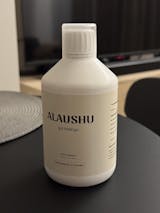- Diet: Spicy, acidic, and fatty foods and drinks (e.g., coffee, alcohol, carbonated drinks) stimulate increased stomach acid production.
- Stress: Emotional and physical stress can influence stomach acid production.
- Smoking: Nicotine stimulates acid secretion and weakens the protective layer of the stomach lining.
- Medications: Some medications, such as non-steroidal anti-inflammatory drugs (NSAIDs), can stimulate acid production and irritate the stomach lining.
- Eating Quickly: Eating in a rush and insufficiently chewing food can increase acidity.
- Large Portions: Consuming large portions can lead to greater acid production.
- Diseases: Conditions such as gastritis, GERD (gastroesophageal reflux disease), or stomach ulcers can increase acidity.
- Hormonal Changes: Certain hormonal changes, especially during pregnancy, can affect stomach acidity.

When and how to take probiotics?
Oct 22, 2024Alaushu
Tags
Probiotics are live microorganisms that support digestive and immune health. For them to work effectively, they must survive the journey through the acidic environment of the stomach and perform their function before being expelled with intestinal contents. So, when is the best time to take probiotics to ensure they are most effective?
The Role of Stomach Acids
Stomach acids play an essential role – they break down carbohydrates and proteins and kill harmful pathogens and viruses that enter with food or drinks. Due to the high acidity of the stomach, beneficial bacteria may also perish.
What Increases Stomach Acidity?
Various factors can increase stomach acidity, including:
The Importance of a Balanced Diet
There's also the fact that getting the necessary amount of beneficial nutrients solely from food is often impossible. Many would agree that maintaining a balanced diet beneficial for health is challenging. If you do manage it – we commend you, as that should be the goal. Still, we understand that in our fast-paced lives, it's not always feasible.
The Benefits of Probiotics
An overly acidic stomach environment is not favorable for beneficial bacteria to survive and perform their function, especially if a balanced diet is not maintained. Therefore, taking additional probiotics can help replenish beneficial bacteria. It is recommended to consult a doctor or pharmacist before starting. It has been proven that beneficial bacteria and a healthy gut flora ensure good well-being and a strong immune system.
When and How to Take Probiotics?
Most readers would probably agree that we usually start taking probiotics when we are on antibiotics. Broad-spectrum antibiotics often cause undesirable effects, such as disrupted gut function, bloating, diarrhea, or constipation. In such cases, taking probiotics can be a real relief. It is recommended to take them from the first day of antibiotic use and continue for at least a few weeks after completing the course. However, did you know that probiotics can also be taken preventatively and regularly to support gut health?
Taking Probiotics During the Cold Season
While probiotics can be taken year-round, their use is particularly relevant during the cold season. It is said that our immune system is strong when our gut is healthy, so probiotics can help strengthen immunity.
Should You Take Probiotics on an Empty Stomach or with Food?
The question of whether to take probiotics on an empty stomach or with food has been debated in the scientific community, and there is no unanimous opinion. Taking probiotics on an empty stomach may allow them to avoid peak acidity levels that food triggers, facilitating the absorption of beneficial bacteria. One scientific study showed that probiotics had the highest survival rates when taken with food or 30 minutes before a meal. On the contrary, taking probiotics 30 minutes after eating was associated with significantly lower survival rates. Based on scientific literature, it is recommended to take probiotics just before or with a meal to increase the chances of beneficial bacteria surviving, reaching the gut, and performing their function. To determine which probiotic combinations are most suitable for specific symptoms, consulting a doctor is necessary, as not all supplements are effective for every condition.
About ALAUSHU Probiotics
Our Active Bacterial Complex – Bifidobacterium lactis, Lactobacillus acidophilus, Lactobacillus plantarum, and Lactobacillus salivarius – consists of well-researched probiotics that are beneficial for gut health and immune support. ALAUSHU probiotics are encapsulated, designed to survive stomach acids and be effectively absorbed.




